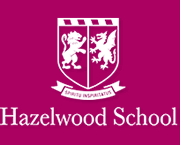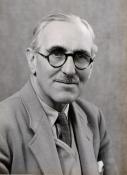
War Memorial
| Major Graham Lowe REID | |
|
59th Field Company Royal Engineers Date of birth: 4th March 1894 Date of death: 22nd May 1968 Died aged 74 Buried |

|
| Graham Lowe Reid was born at Einstein House, Mount Ephraim, Tunbridge Wells in Kent on the 4th of March 1894 the third son of Russell Belfrage Reid, a retired tea planter, and Margaret Laura (nee Willett) Reid of 30 Dene Street, Dorking in Surrey. He was christened at Dorking on the 15th of April 1894. He was educated at Hazelwood School until April 1906 where he was a member of Football XI in 1904 and 1905 and was a member of the Cricket XI in 1905. The school magazine wrote the following on his 1904 football season: - "(Outside left) - A very promising forward, uses his head with effect, and centres very prettily; must rid himself of a habit of turning his back when meeting an opponent." They wrote of his 1905 football season: - "(Outside left) -A very useful forward with plenty of dash an initiative; has been handicapped by a strained thigh, compelling an excessive use of the right foot, with consequent loss of time and resource." They wrote the following on his 1905 cricket season: - "Has everything to learn as yet, but is full of promise as a bat and fieldsman, and may make a bowler." He went on to a larger Preparatory School with his brother Miles and then went on to Cheltenham College where he won a scholarship and was in Christowe House from September 1908. He was a member of the Hockey Xi in 1909 and of the Rugby XV from 1910 to 1912. He was a member of the Cricket XI in 1910 and 1911 and of the Racquet Pair from 1910 and was Racquets Champion in 1912. He represented the school in the Public Schools Racquets Championships in 1911. He was appointed as a Prefect, and as Head of School, in 1912 and left the school in December that year. He went on to the Royal Military Academy Woolwich in January 1913 where he represented the combined forces of the Royal Military Academy and the Royal Military College Sandhurst in the trial rugby match against the Army on the 17th of December 1913. His studies were interrupted by the outbreak of war and he did not complete his fourth term. He was placed as 9th in the Order of Merit in the examinations for a commission in 1914 and was awarded the Sword of Honour in absentia. He was commissioned as a 2nd Lieutenant in the Royal Engineers on the 12th of August 1914 and trained at Chatham. He embarked for France on the 11th of May 1915 and was promoted to Lieutenant on the 24th of June 1915. He was invalided home with peripheral nephritis later that year. He was promoted to Acting Captain on the 24th of October 1916 and to Acting Major on the 8th of December 1916. He reverted to the rank of Acting Captain from the 26th of January 1917 to the 29th of May 1917 and from the 7th of August 1917 to the 2nd of November 1917. He was promoted to Captain on the 3rd of November 1917. He resigned his commission in April 1919, passing into the Reserve of Officers. He was married to Thelma Irene (nee Allan) on the 4th of January 1916, and had a son, Donald Graham Russell, born on the 12th of December 1916, a daughter, Sonia Thelma born on the 15th of April 1919, and a son, Allan Robert, born on the 9th of December 1920. From 1925 until 1947 the family lived at "Yew Tie", Pilgrim's Way, Reigate in Surrey when he worked as a Company Managing Director. He wrote to the War Office to resign from the Reserve of Officers in a letter dated the 16th of October 1922; the request was accepted and his resignation was effective from the 4th of November 1922. Following the outbreak of the Second World War he was granted the rank of Lieutenant in the Royal Engineers on the 15th of July 1940. In 1947 he bought a farm at Sandhurst in Kent. |
|
 | |
| Went on to Cheltenham College |
Back